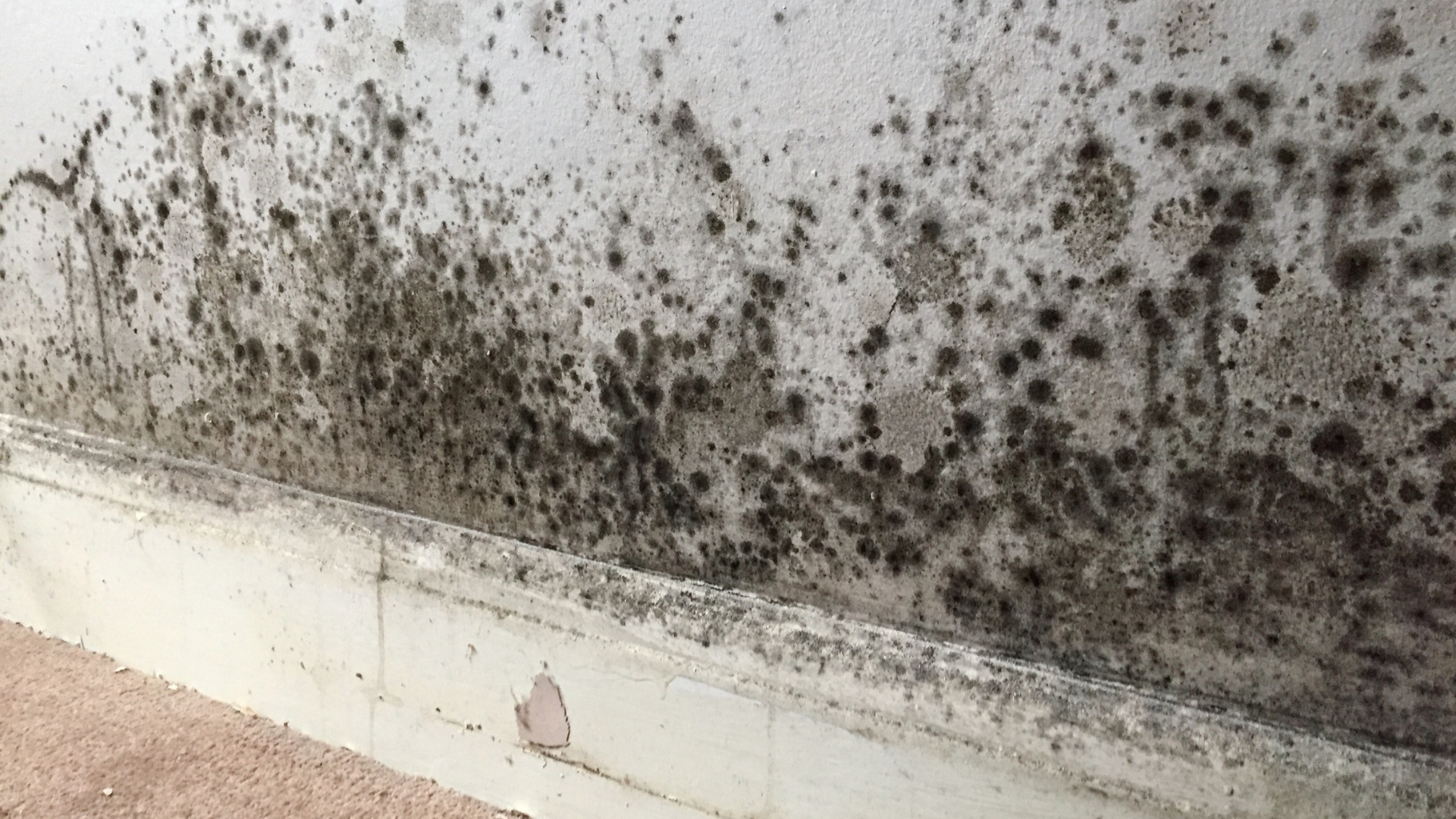England: Vulnerable child lived in damp and mould for three years

One of the largest providers of affordable housing and care in England has been ordered to pay almost £15,000 in compensation following a number of failings including vulnerable children living in damp and mould for three years and another resident with fungi growing in one of the bedrooms.
The Housing Ombudsman has made four findings of severe maladministration for Guinness Partnership.
In Case A, the Ombudsman found severe maladministration after the landlord failed to fix a roof that was impacted by bird infestation for 21 months.
Ten months of the delays were caused by poor contractor changeover and the temporary measures put in place by the landlord were insufficient, as was its overall offer of compensation.
Whilst the landlord acknowledged its failures in its stage two response, it took a further four months to fix the problem.
There was no evidence throughout the repair the landlord considered its obligations under the housing health and safety rating system (HHSRS) and failed to keep the resident updated throughout the complaint.
The Ombudsman ordered the landlord to pay £1,360 in compensation, provide a written apology from the chief executive and to offer the resident an inspection of his roof if he would like it.
In Case B, the Ombudsman found severe maladministration for how the landlord handled repairs and damp, as well as for its complaint handling throughout the case.
This meant that the resident and her family were left with an ongoing leak that left them living in a damp and cold property repair for an excessive period of time. The family were forced to live with an ongoing leak, and the associated damp, mould and fungi growing in one of the bedrooms.
There were excessive delays in completing repairs, a consistent lack of communication from both the landlord and its contractor, poor record keeping, poor contract monitoring, repeated failure to complete a permanent repair and failure to follow its policies and procedures.
There were also severe failings within the landlord’s complaint handling. After seven months delay, it failed to provide a stage 1 response and escalated directly to stage 2 with no clear instruction from the resident. The landlord’s complaint handling was overly protracted, ineffective and disorganised, and the landlord sent a stage 1 complaint three days after it sent its stage 2 complaint with no explanation. It had sent no prior acknowledgement or indication it was investigating a further stage 1 complaint. In addition, the stage 1 response was factually incorrect.
Whilst the landlord’s learning statement says these issues were raised in 2021, the repairs in this case were still not resolved by the landlord at the time of the Ombudsman’s determination and had to be ordered as part of an action plan with the resident.
The Ombudsman also ordered the landlord to pay the resident £5,300 in compensation, carry out an inspection and heat loss survey at the home, as well as seeking whether the resident needs any adjustments based on a heart attack she suffered during the complaint.
In Case C, the Ombudsman found severe maladministration after failure to effectively deal with damp and mould in a vulnerable child’s bedroom for almost three years.
After the initial reporting of the incident, an operative attended the property and recommended intrusive tests were required, but this was not acted on. When it was raised again months later, the landlord sent another operative who recommended the same thing but in response simply isolated an outdoor tap and marked the job as complete.
Over the next 14 months, the resident chased the landlord for repairs and had jobs cancelled three times to rectify this situation. The landlord provided no updates or timetable on the repair, causing further distress to the resident.
The landlord was aware of the child’s health condition and received a letter from the family doctor explaining the need for the mould to be treated urgently, but this was no seen in its actions.
As in Case B, the landlord has stated in its learning statement that the issues in this case were from 2021, but at the time of determination works still had not been completed and the resident and her child were still living in damp and mould.
The Ombudsman ordered the landlord to instruct a specialist damp surveyor to produce a report to identify the remedies needed, follow the works required in that report in full, as well as paying the resident £2,720 in the meantime for the distress and inconvenience caused.
In Case D, the Ombudsman found severe maladministration after the landlord failed to undertake effective repairs, with some still outstanding at the point of the Ombudsman’s determination – 14 months after it was first notified.
Because of the landlord’s failings, and its poor communication, the resident’s enjoyment of her property has been severely curtailed for a prolonged period.
When the resident reported her doors were faulty, the landlord should have arranged someone to assess this within 24 hours – however it took 13 calendar days for someone to look at them. This did not have the urgency required to make the home safe.
The landlord visited the property on four separate occasions and noted the same repairs were needed every time, without any further action taking place.
Despite further reports that the resident’s house was “freezing” in the winter months, the landlord continued to miss opportunities to expedite the repairs or consider how it could reduce the detrimental impact of the cold on the resident and her children, given the time of year.
Another repair ongoing was a bathroom refurbishment, which was confirmed after an inspection.
However, some of it was completed but all. When this was chased the landlord reported it had finished the works but no such installation had taken place.
While the landlord has confirmed that it has taken its repairs back in house last year, to offer an improved service, the resident continued to receive a poor level of service, which does not indicate any service improvements on the landlord’s part.
The Ombudsman ordered the landlord to pay the resident £5,500 in compensation, to review its repairs and record keeping, as well as reviewing itself against the Complaint Handling Code.
Richard Blakeway, Housing Ombudsman, said: “The poor condition of some homes dominates our casework and these cases speak to many of the failings and missed opportunities we see. This includes inspections not carried out early enough or no repairs actioned afterwards, poor record keeping, as well as respecting the resident by communicating or updating them.
“Particularly concerning is that many of the issues we investigated in these cases were ongoing at the point of our decision, despite the landlord knowing that some repairs were incomplete. Our orders mean that appropriate actions have been taken and residents are now living in more habitable homes. But this is another example of the landlord missing opportunities to put things right.
“ I welcome the action taken by landlords to improve services. While the landlord has stated these complaints arose in 2021, not only did many of the repairs take years to complete but some of the actions, such as repairs coming in-house, also contributed to issues in some of these cases.
“There are a significant number of cases being escalated to the Ombudsman concerning the landlord, which indicates further learning and action may be required.
“Underpinning many of the failings was also a lack of robust knowledge and information management, and we would urge the landlord and others in the sector to familiarise themselves with our Spotlight report on this topic to drive improvements for residents.”
In its learning from these cases, the landlord said it has undertaken a review of how it manages contractors and now delivers more repairs in-house, as well as increasing the resource for both the complaints and repairs teams.
A Guinness Partnership spokesperson said: “We have made significant improvements to our services since these issues arose in 2021. The service these 4 residents received was not good enough, and we are very sorry for letting them down. We have apologised to the residents for the impact our failings had on them and their families.
“We promote a positive complaint handling culture and we aim to learn from every complaint to improve how we do things. We continually review the services we provide to ensure they are appropriate, responsive, and sensitive to the needs of all residents.
“Since the period covered by the Housing Ombudsman’s investigations, we have undertaken a thorough review of the management of contractors and now deliver more of our repairs in-house, supporting much-improved service delivery.
“We have restructured, retrained, and increased the resourcing of our complaints teams, continued to increase the size of our repairs team, and made significant investments in our internal systems and processes, recognising the importance of recording keeping.
“We recognise that we needed to do better in these cases. We are committed to listening to our residents and working with the Ombudsman, using all feedback to improve.”






